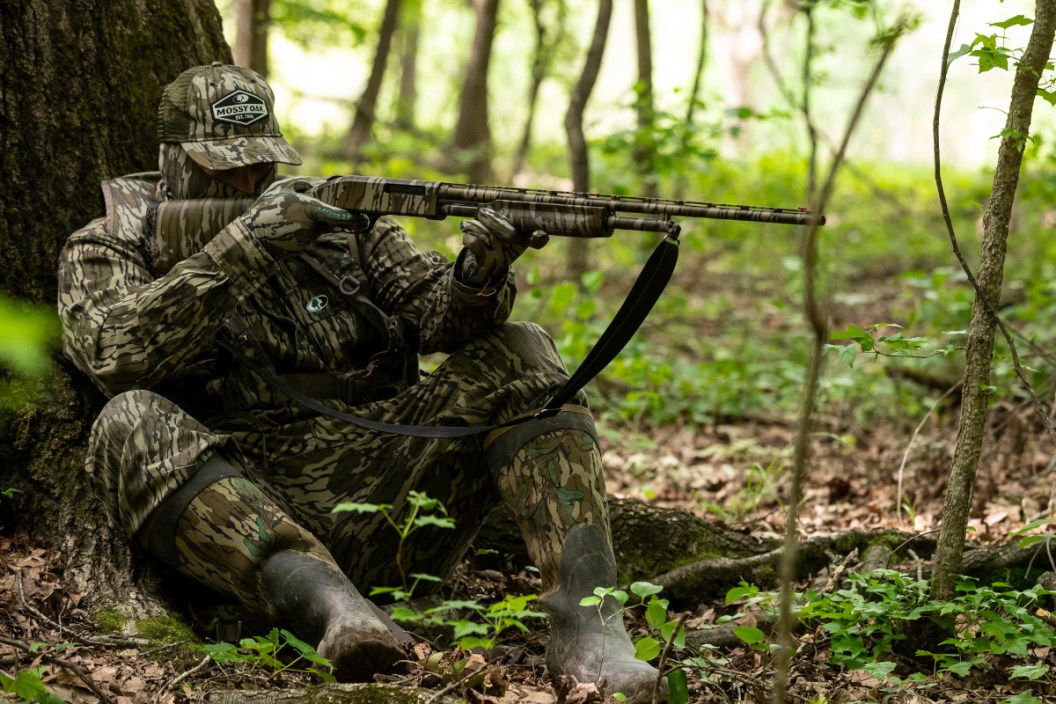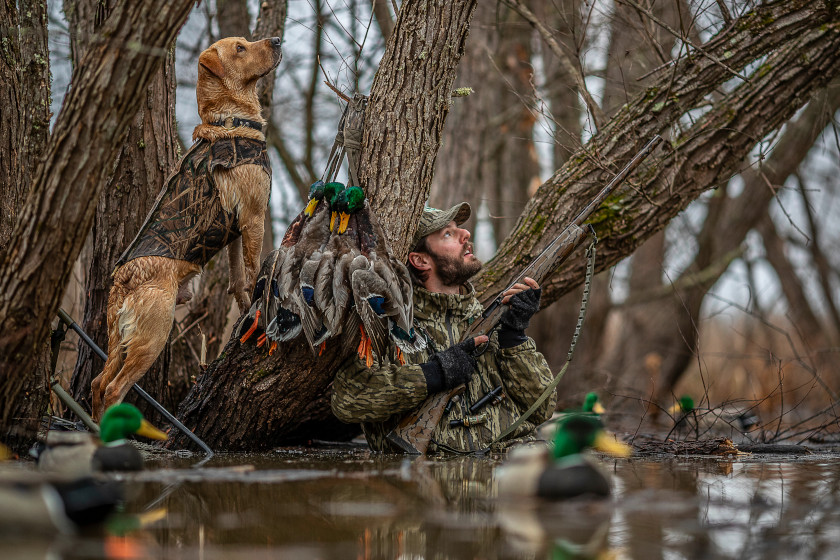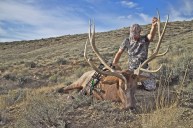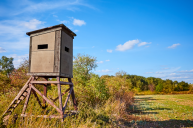Hunters are notorious for their readiness when it comes to the hunt, going so far as to plan next year's outing during this year's open season. But there is one thing we never take for granted, and that's the shot. We have long since come to understand that these opportunities usually happen in an instant and can be just as fleeting. That's why it's imperative to always be prepared for the shot. Ask any hunter about that, and you will likely hear "easier said than done."
With that in mind, we spend a lot of time at the range to make sure that when the moment of truth arrives, we are ready and able to make the shot. But make no mistake, an open shot on game comes with a great responsibility, and it can mean making a decision on your feet in the spur of the moment.
While hunter safety is one of the components in play here, there are several other reasons why we sometimes stand down even though our target game animal is right in our sight.
Background Distraction
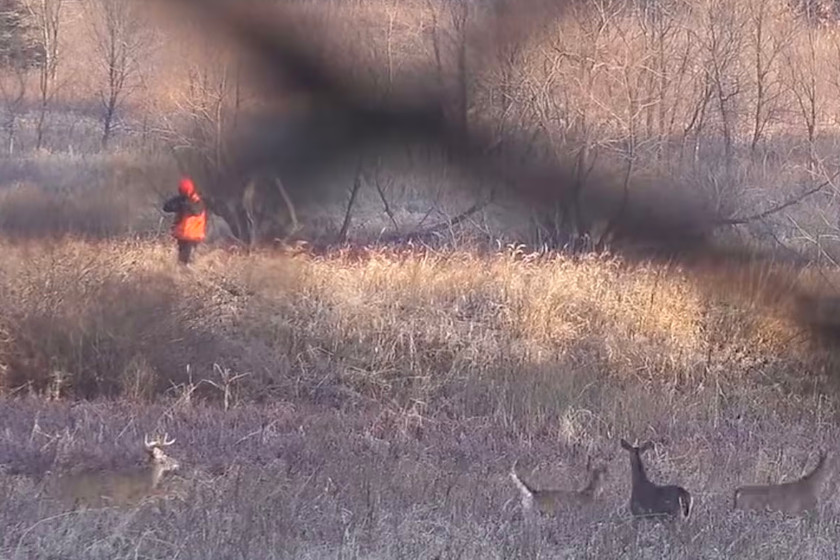
YouTube: The Hunting Public
Making sure of the target and what is beyond it is one of the cardinal rules of firearm safety. It's usually the first thing new hunters learn, and it goes well beyond the firing range. Almost every hunter has had a moment where they had to pass up the shot at their target animal due to something unexpected in the background. In many cases on public land, it's another hunter.
I'll never forget being with a buddy of mine and stalking a big eight-point that was bedded in some cattails. When the buck stood up, it detected his presence and gave me a broadside shot. My partner was at a right angle to the deer, but I could see his blaze orange through the pine trees that he was walking around, so I didn't shoot. In a situation like this, it's better to tell the story of the "one that got away" rather than a tale of how "I shouldn't have taken that shot."
Hens vs. Drakes
We could also say hens versus roosters and hens versus Toms, but it is a very important factor in waterfowl hunting. While there are many regions where the taking of a hen pheasant or a hen turkey is perfectly legal, there are other areas where it is strictly forbidden. Letting them fly on is not so dissimilar to catch-and-release fishing in a way. In fact, many hunters prefer not to take the shot. When it comes to waterfowl hunting, there is marked science to this, mostly because the bag limit is lower for hens than for drakes. With bass fishing, many anglers take home a limit and enjoy them as the excellent table fare that they are, and the same goes for waterfowl hunters taking their legal limit of ducks. It's just that most will let them go, the same as passing on a shot at a hen mallard. At the same time, we need to know when to hold off on the shot due to legal or ethical reasons.
Younger Animals
Fawns, young bucks, and Jakes are some of the wild game that come to mind when discussing passed shots while hunting. Let it be known that in most regions, most of these animals are fair game when it comes to the open season, and we're not here to judge or tell you otherwise. However, for many hunters, not taking the shot is as big a part of the hunting experience as a successful hunt, so passing on any of these goes without saying. Sure, it's not always so simple to tell a a fawn from a mature doe at a distance, but a spike or a fork-horn buck is a great reason to take video instead of the shot.
Not Needing to Fill Every Tag
Some hunters just don't feel the need to fill all the tags available to them. There was a time in my home state when a deer hunter could take a second buck during firearms season if he or she had a valid deer management permit and the opportunity presented itself. While many hunters would consider themselves seriously blessed if a second buck walked by (at some point) after a first had already been taken, many others wouldn't think of doing it. And that's just their personal choice. Although this game law has long since been removed from the books, there are other ways of taking a second buck in New York if the hunter chooses. And there are similar regulations in many other areas, too.
Conscience
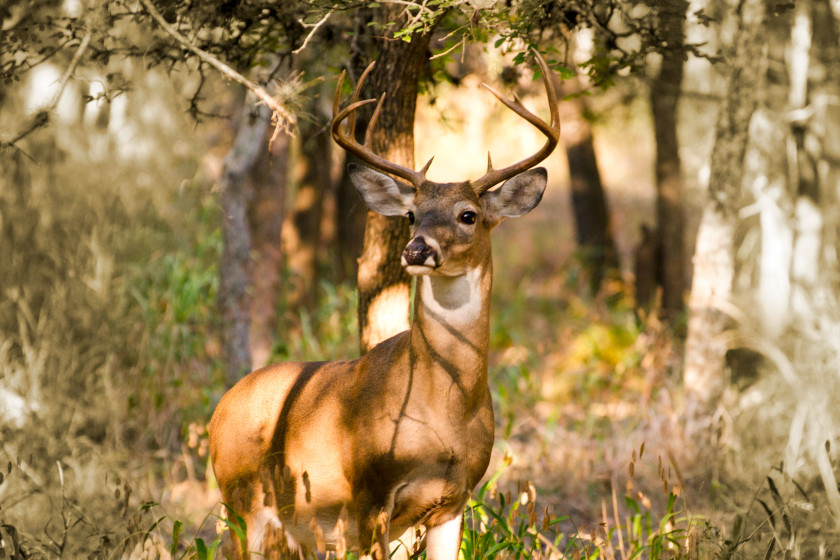
Meledy Photography via: Getty Images
It may be lost on some, but there is a very real time when we just feet the need to wait on the shot until our hearts and minds are more prepared. Not many hunters have an attack of conscience in the treestand or the blind, but there are times when we feel that inner voice telling us that it's alright to wait a little longer.
Ethical hunting comes from the idea that we aren't out there only to kill, but more so to take detailed stock of ourselves and the way that we conduct our lives in the woods and fields of the world for the betterment of the wild game that exists there. And sometimes, not taking the shot is the right choice. Maybe it's the distance, maybe it's the angle, maybe there's worry of deflection due to a branch. Whatever the case may be, it's perfectly fine to decide you need to wait.
Please check out my book "The Hunter's Way" from HarperCollins. Be sure to follow my webpage, or on Facebook and YouTube.
